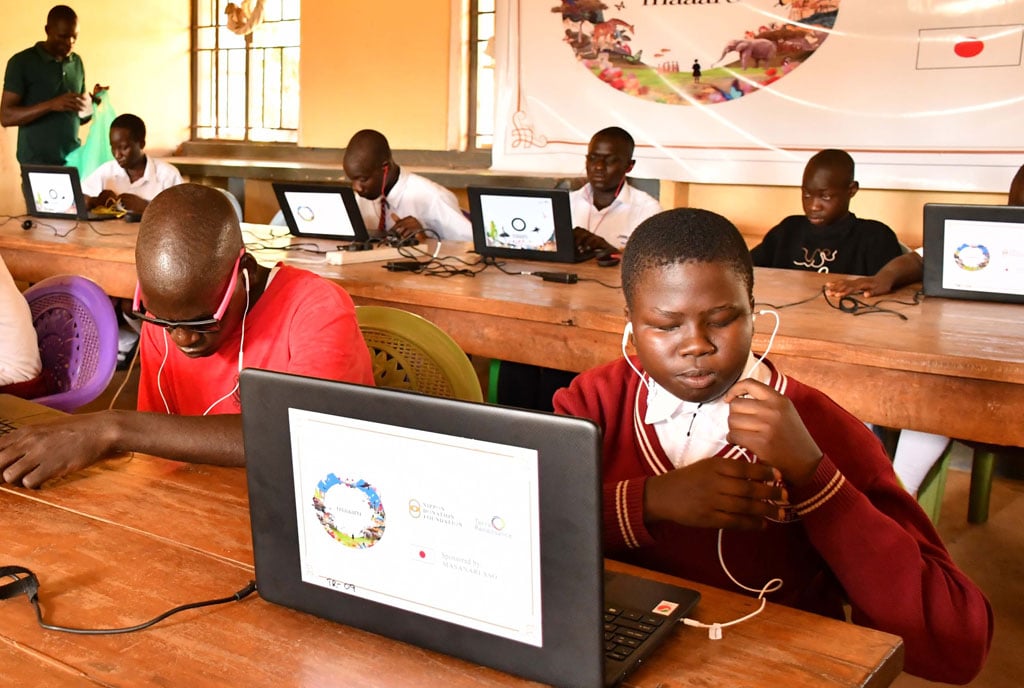Prime
Who is innovating for the visually impaired?

Racheal Mpumwire
What you need to know:
…marginalised and excluded categories of people, like the visually impaired, should be included in planning.
I always thought my eyesight was perfect until university, when my friends joked that I had issues with my vision because I didn’t recognise things that were right before me, like the keyhole to my hostel door. I struggled to revise my notes and relied on discussions. Some classmates thought I didn’t want to read. Yet, in high school, I was sure I had effortlessly read novels like Mine Boy, Romeo and Juliet, plus my first faith book, Good Morning Holy Spirit, by Benny Hinn.
One morning in early 2021, as I opened my laptop to work, I realised I could not see clearly. I was terrified and confused. I only caught glimpses of images in the corners of my eyes that disappeared like a flash. The journey to doctors left me wondering whether I was born with this condition (Macular degeneration)!
I blamed myself for not detecting this earlier. I decided to progress as though nothing had happened. The events of this adaptation have led us to this article, with the hope of helping visually impaired people cope in a challenging environment.
In Uganda, 5.9 percent of the population is visually impaired. Six out of every 100 people are affected. This severe problem shouldn’t be downplayed as we move towards digitalisation.
Digitalisation has become an integral part of our lives, transforming how we live, work, and interact with the world around us. In Uganda, the Ministry of ICT has launched the Digital Agenda. However, accessing and benefiting from these technological advancements can remain a significant challenge for visually impaired individuals.
In Uganda/Africa, where the visually impaired community still faces numerous barriers, promoting and facilitating digitalisation with them in mind is crucial to ensure equal opportunities and inclusivity. Firstly, addressing the obstacles that hinder the visually impaired from fully participating in the digital world is essential.
Lack of awareness and knowledge about assistive technologies is one such barrier. Many visually impaired persons in Uganda/Africa must be made aware of the technologies that can enhance their digital experience. Therefore, initiatives must be established to raise awareness and provide training on assistive technologies, such as screen reader magnifiers and Braille displays.
Furthermore, the affordability and availability of assistive technologies is another challenge many visually impaired individuals in Uganda/Africa still face.
Promoting and advancing digitalisation among visually impaired persons in Africa requires a multi-faceted approach involving government, NGOs, and the general populace.
Government and NGOs should work together to establish policies and guidelines that promote accessibility in digital platforms and technologies. This includes enforcing standards like web content accessibility guidelines (WCA) and ensuring that other digital tools are accessible to
visually impaired users in schools, workplaces, and public service centres.
There is an urgent need to provide training programmes and workshops that teach visually impaired individuals of different categories how to use digital tools and technologies effectively. This could include preparing them to use screen readers and assistive devices and providing specialised training on software and applications designed for visually impaired persons. The government should invest in a developing infrastructure that supports digital connectivity and accessibility for visually impaired individuals. This includes improving internet connectivity, establishing accessible public Wi-Fi zones, and providing subsidies or assistance for acquiring assistive devices.
For holistic and equitable development, marginalised and excluded categories of people, like the visually impaired, should be included in planning, especially as the country advances the digital agenda. This will ensure that we have a Uganda where the visually impaired can achieve their dreams despite their physical limitation.
Ms Racheal Mpumwire is the Finance and Administration ManagerNamugongo Martyrs Church Community (COU), SACCO




